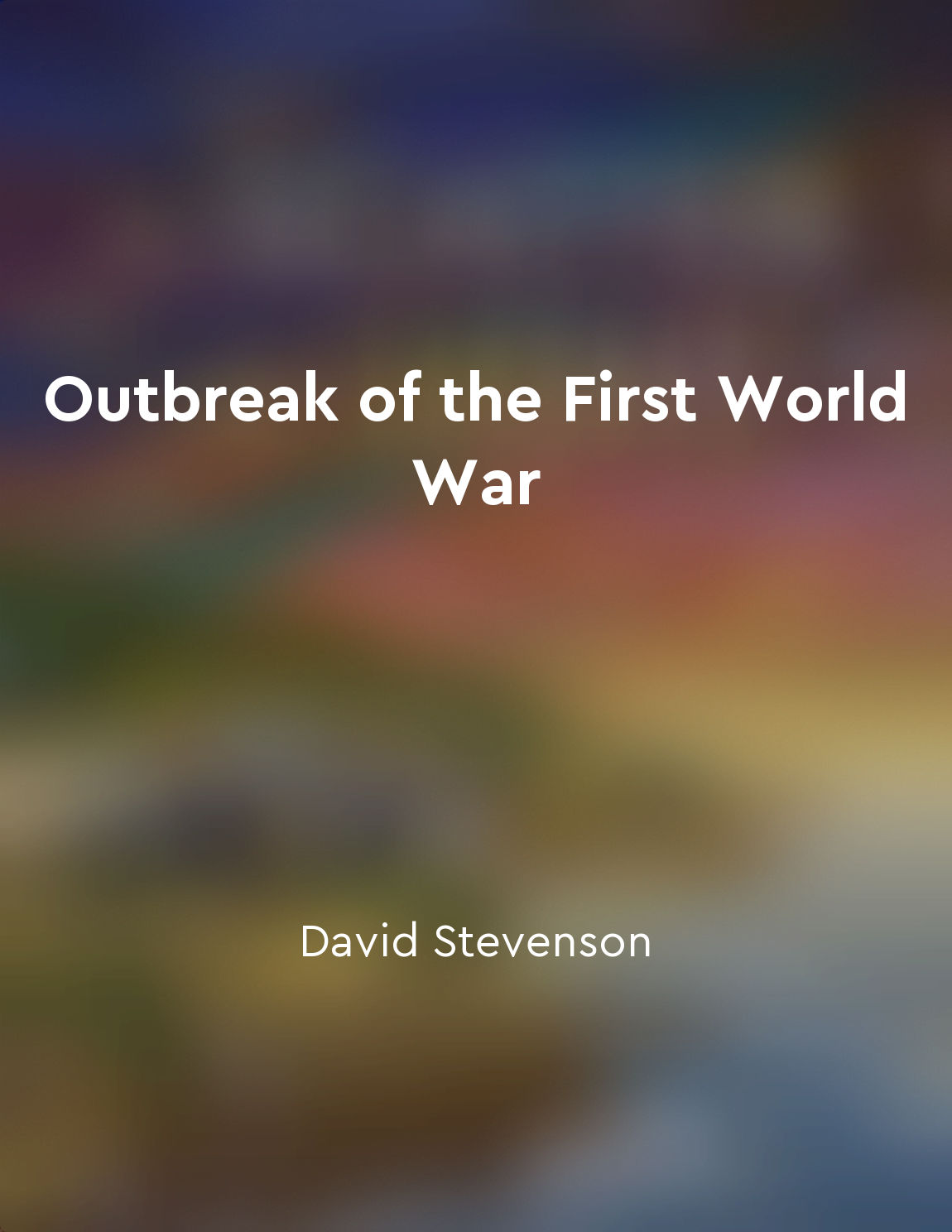Entry of United States into conflict from "summary" of Outbreak of the First World War by David Stevenson
The United States' entry into the conflict was a pivotal moment in the First World War, altering the course of the conflict and ultimately contributing to the Allied victory. Prior to the United States' involvement, the war had been largely confined to Europe, with the Central Powers and the Allies locked in a brutal stalemate. However, the entry of the United States into the conflict in 1917 brought a new dimension to the conflict, as the world's largest industrial power threw its considerable resources behind the Allied cause. The decision to enter the war was not taken lightly by the United States, as the country had sought to maintain a position of neutrality in the conflict. However, a series of events, including the sinking of the Lusitania and the Zimmerman Telegram, pushed the United States towards war. President Woodrow Wilson, who had campaigned on a platform of keeping the United States out of the war, ultimately made the fateful decision to ask Congress for a declaration of war against Germany in April 1917. The United States' entry into the conflict had far-reaching consequences for the war effort. The American Expeditionary Force, under the command of General John J. Pershing, brought fresh troops and resources to the Western Front, bolstering the Allied forces and tipping the balance of power in their favor. American troops played a key role in a number of major offensives, including the Meuse-Argonne Offensive, which ultimately helped to break the stalemate on the Western Front. The United States' entry into the conflict also had significant political implications. The United States' participation in the war helped to shape the post-war settlement, as President Wilson played a key role in the negotiations that led to the Treaty of Versailles. Wilson's vision of a new world order based on the principles of self-determination and collective security helped to shape the League of Nations, the precursor to the United Nations.- The United States' entry into the conflict was a turning point in the First World War, bringing fresh resources and troops to the Allied cause and ultimately contributing to the Allied victory. The decision to enter the war was not taken lightly, but ultimately helped to shape the course of the conflict and the post-war settlement.


